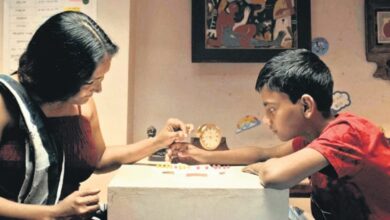Why are Dutch kids ranked among the happiest kids in the world?
The Netherlands is recognized for its beautiful surroundings, vivid tulip fields, and a liberal society. The happiness of their children, however, is another area in which the Dutch thrive. Dutch children are frequently rated as among the happiest in the world in surveys. What, then, is the key to this happy childhood memory in the Netherlands?
The Dutch Way of Life
1. Supporting Independence and Freedom
From an early age, children in the Netherlands are encouraged to explore and grow in their freedom. Dutch parents, in contrast to other cultures, believe in providing their kids the freedom to make choices and learn from their errors.
2. Little Academic Stress
Despite the importance of education, child welfare is given precedence in Dutch schools above academic accomplishment. Standardized testing is not as heavily stressed, enabling kids to study at their own speed and follow their interests.
3. Ample Outdoor Recreation
Children in the Netherlands spend a lot of time outside. The nation’s numerous parks, bike-friendly infrastructure, and secure neighborhoods promote outdoor recreation, promoting both physical and emotional health.
The Function of Trust
4. Belief in Children’s Intuition
Children’s decision-making is trusted by Dutch parents and educators. This trust fosters resilience and self-assurance, both of which are necessary for their future pleasure.
5. Honest Conversation
In Dutch households, communication is essential. Open communication between children and adults fosters an atmosphere of support and understanding.
Social Justice
6. Fair Treatment for All
The social equality in the Netherlands is well recognized. No matter their circumstances, all children have access to high-quality healthcare and education, which reduces disparities and improves general wellbeing.
A Well-Rounded Strategy
Work-Life Harmony
Healthy work-life balance is highly valued in Dutch culture. Strong family ties are formed as a result of parents spending more time with their kids.
8. Restricting Screen Time
Dutch kids don’t spend much time on screens. This method encourages direct communication and physical activity.
Safe and inclusive neighborhoods
9. Safe Roads
The streets and communities in The Netherlands are secure. Children may freely explore their surroundings thanks to this security.
10. Diversity and Inclusivity
The culture of the Netherlands values variety and inclusiveness. All youngsters will have a feeling of belonging as a result of this.
Conclusion
Dutch children’s happiness is the outcome of a comprehensive strategy that prioritizes independence, trust, and wellbeing. Other countries may work to provide their kids a better upbringing by adopting these ideals.







